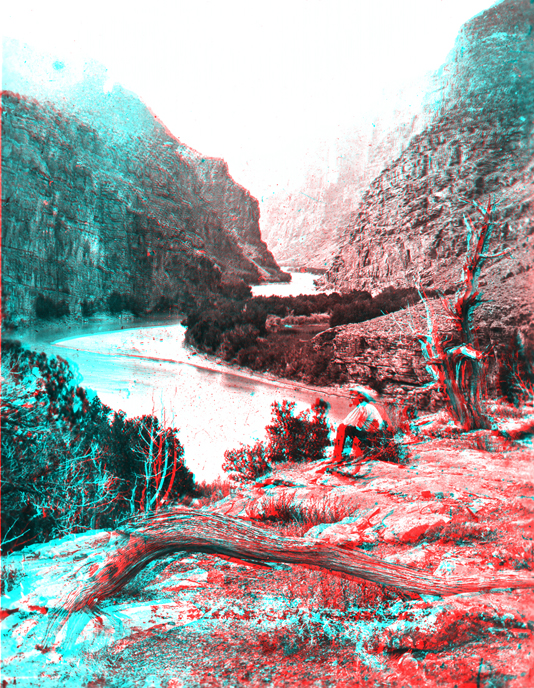
USGS Earth Science Photographic Archive digital files: hjk00505 and hjk0505a
Upon seeing the rapids at the entrance of an unnamed chasm of the Green River, a crew member of the First Expedition (1869), Andy Hall, recited part of a childhood poem that Major Powell knew well ("Cataract of Lodore" by Robert Southey, 1774-1843). Powell named Canyon of Lodore, after the poem. Canyon of Lodore is at the western end of Dinosaur National Monument. In 1909, paleontologist, Earl Douglass, made a spectacular discovery of dinosaur bone beds at the western end of Split Mountain. Initial excavations were conducted by the Carnegie Museum. Publicity led to the establishment of an 80-acre national monument in 1915. The monument was expanded in 1938 to preserve over 200,000 acres in Utah and Colorado. The modern park encompasses four major river canyons: Canyon of Lodore, Whirlpool Canyon, Split Mountain Canyon, and the Yampa River Canyon. The northern mouth of the canyon is called the Gate of Lodore where the Green River leaves the softer sedimentary and volcanic bedrock of Tertiary age and enters a canyon carved in more resistant and more ancient bedrock.